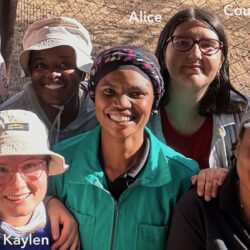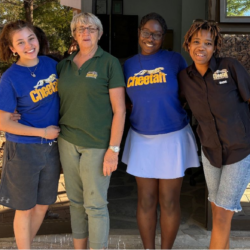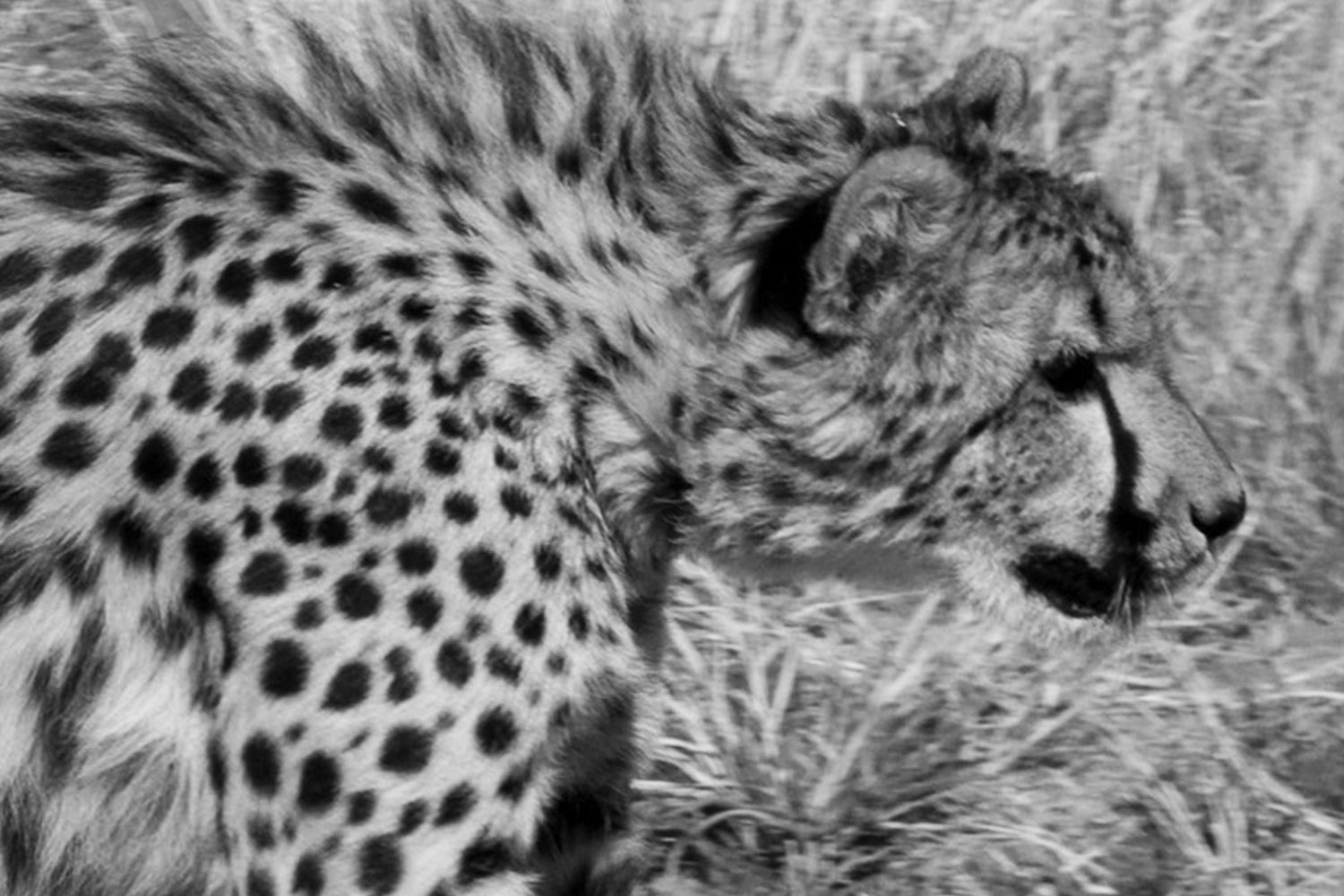From Classroom to Field Work: A New Perspective
-

- by Cheetah Conservation Fund April 15, 2024
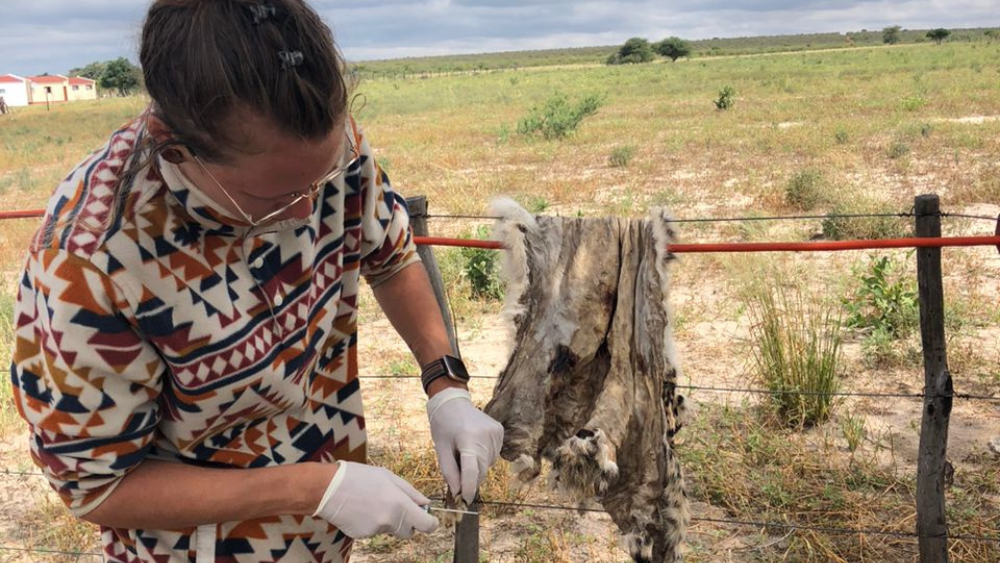
A long, but important post. Not all news from conservation is good news, but every incident is an opportunity to create an open dialog between the different parties involved. Conservation is never one-sided, it can be challenging, difficult and upsetting, but always worthwhile. One of the biggest obstacles cheetahs face is conflict with farmers and dogs, and during a farm visit by a previous CCF intern, Adreena, a cheetah cub mortality incident was discovered. Read on to hear her story.
“At the end of January 2024, I arrived at CCF to spend two months as an ecology intern from Vanier College, ready to soak up and learn as much as possible about the region. As a student of Environmental and Wildlife Management, we had discussions regarding human-wildlife conflict during lectures and it is something I feel strongly about resolving for achieving a sustainable future. During my time at CCF, I learned more about the complexities of conflict as humans and wildlife alike strive to live under harsh environments. From seeing rescued cubs, residents and release candidates under the dedicated care of CCF, I developed a greater appreciation for the amount of work that goes into coexistence, conservation, and mitigation plans. I have since continued my stay in Namibia with another two month internship with the Kalahari African Wild Dog Conservation Project, where we are working in extremely remote regions in Eastern Namibia. Livestock farming is a pivotal aspect of culture, sustenance and survival out here, where cattle are often the foundation of livelihood. While visiting a farm as part of early intervention concerning African Wild Dog activity in the area, we unfortunately found the pelt of a young cheetah cub left to dry along a fence. My brain at first did not want to accept what was there and a ball of anger grew in my stomach. After speaking with the farmers, the cub and her mother had jumped into the livestock kraal at night and, unfortunately, the cub was caught by farm dogs and killed. As I collected tissue samples from this young cub, I felt devastated at the loss of the life and fought back tears while removing strips of dried skin from this beautiful creature which will never get to experience a full life as she should have. However, I also heard the farmers story and can empathize with their need to protect the livestock which they rely on for survival. I realized during this experience that conflict mitigation must not pit survival of one species over another. Humans as well as wildlife are exposed to the harshness of access to food and water, and each are equally deserving of life. The circumstances leading to this event are unusual as cheetahs entering a kraal does not reflect normal behaviour, and getting more information on why this may have happened is important. To assist in monitoring of the region to help reduce conflict, camera traps near the farm were installed so we can hopefully gain more insight into the wildlife activity, in addition to the GPS collared Wild Dogs that contribute to early warning systems. We will continue to work with the farmer and exchange any information we find to better understand the situation and help find solutions. With the information we collect we will be able to relieve some stress and sense of threat felt by the farmer, which was an unpleasant experience for him as well.
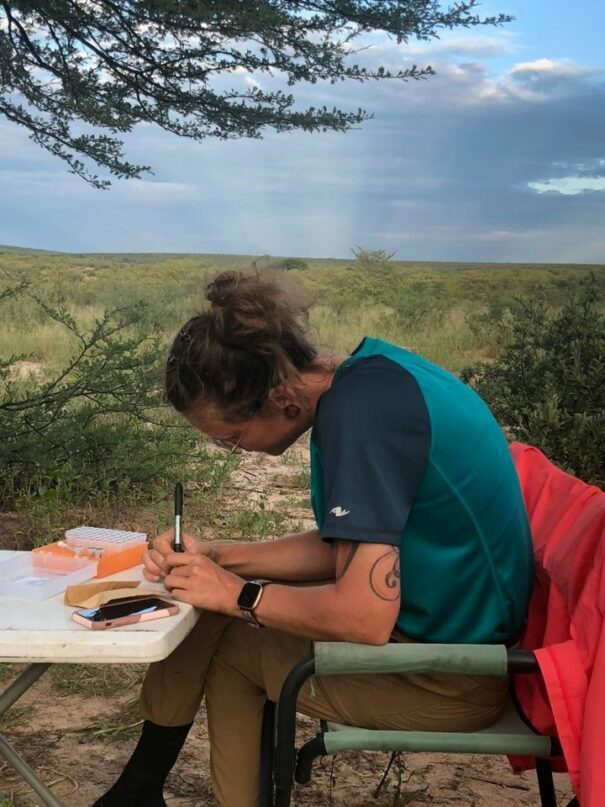
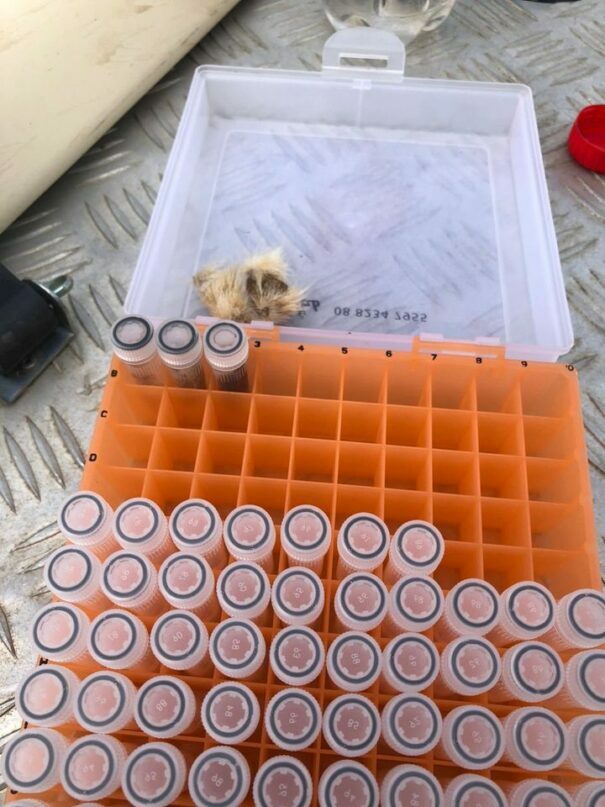
The tissue samples collected will be sent to the genetics department at CCF for analysis. While I left feeling quite heavy from this farm visit, important exchanges of information occurred, as well as the establishment of an important relationship. This is truly the basis of conflict management – it must begin with a conversation which will lead to a collective understanding, cooperation and coexistence. The work of CCF through the vision of Dr. Laurie Marker is truly invaluable for not only the survival of cheetah, but also for the success of life in Namibia. I am truly grateful for all I learned from the amazing team at CCF and to have seen conservation in action under the truly complex pressures of human-wildlife conflict. The strength, perseverance, and innovation witnessed at CCF was inspiring and has helped shape me as a person. My gratitude goes out to Dr. Laurie and the CCF team for allowing me to share this experience.”
Adreena’s experience is a sad one, but shows the continued importance of community engagement in conservation. Though the life of this cheetah cub was cut tragically short, it will still contribute to the conservation of its species, through the research conducted at CCF. You want to support research or Future farmers of Africa program, please go to donate.
"Cheetah Tracks" Newsletter Sign-Up
Stay updated on the activities of Cheetah Conservation Fund in Canada, Namibia and Somaliland. We send semi-annual newsletters and info about special events and initiatives. We will not share your email address with any other organization.
Related Reading
-
July 29, 2024
From Classroom to Savanna – Our Journey at CCF -
June 12, 2024
Our journey at CCF: Conservation and Collaboration

